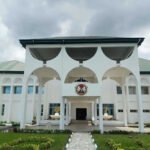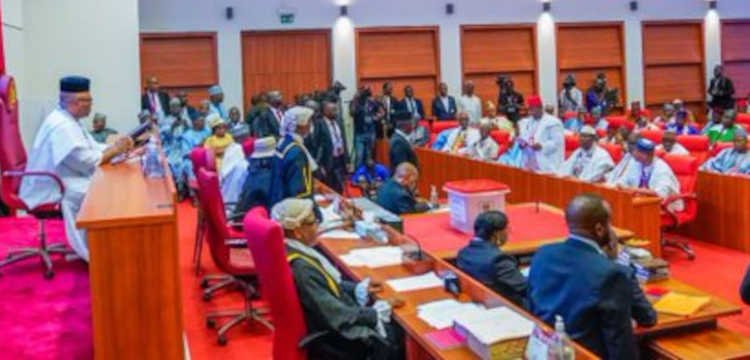Federal lawmakers in Nigeria can demonstrate a genuine commitment to women’s empowerment by reconsidering the gender bills thrown out by the ninth assembly.
Development Diaries reports that despite efforts that have been made to increase women’s participation in politics, Nigeria is still far from achieving substantial and effective participation in political processes and decision-making.
Recall that the ninth assembly, in March 2022, rejected for the third time five bills that sought to promote gender equality in the country.
The bills called for increased representation of women in the federal and state legislatures, citizenship by registration for non-Nigerian men married to Nigerian women, indigeneship rights for married women, 35 percent affirmative action for women in political party administration, and a reserved quota for women in cabinet positions.
The bills are, namely, ‘Expansion of the Scope of Citizenship by Registration’, ‘Special Seats for Women’, ‘Affirmative Action for Women in Political Party Administration’.
The other seeks to provide voting rights for Nigerians living in the diaspora and the last bill aims to confer the right for women to obtain indigeneship of their husband’s state after at least five years of marriage.
Unfortunately, these bills were rejected.
The National Bureau of Statistics (NBS), in its Statistical Report on Women and Men in Nigeria, released in 2023, disclosed that women have continued to record low representation in all tiers and levels of governance.
The rejection of gender bills aimed at promoting more opportunities for women in politics and governance signifies a concerning resistance to inclusivity within the country’s political landscape.
Denying these bills undermines efforts to address gender disparities and encourages a cycle of marginalisation and underrepresentation for women in Nigerian politics.
It is also unfortunate to note that despite assuring in his manifesto that women will get 35 percent of the positions in his cabinet, President Bola Tinubu’s ministerial cabinet does not match the proposal in his manifesto.
It must be understood that equal participation of women and their access to positions of political leadership and decision-making at all levels are fundamental for achieving much-needed economic growth and a well-functioning democracy.
For this reason, we urge the National Assembly not to miss the opportunity to harness the full potential of the nation’s talent pool and create a more inclusive and equitable society.
Furthermore, the National Assembly must understand that passing these bills will help to end traditions, practices, and laws that harm women.
Development Diaries calls on the tenth National Assembly to take action now and reconsider all gender bills that seek to promote more opportunities for women in political parties, governance, and society at large.
Photo source: NASS







